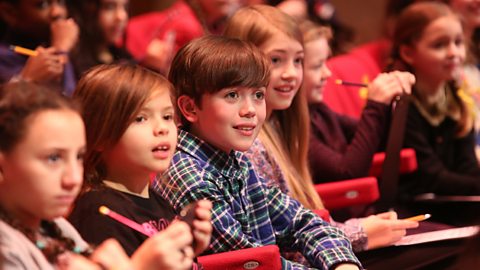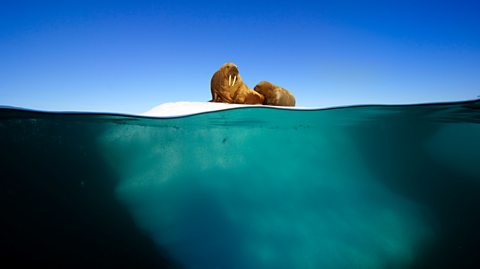
How much do your children know about climate change β and do you know how to answer their questions?
Check out our guide to below and join the Blue Planet Live Lesson on Tuesday 26th March, which will investigate plastic pollution, sustainability and the effects of climate change on our oceans.
What is climate change?
Climate change explains the long-term changes to our weather patterns. Weather is the description of what the conditions are like in one place, at one time. For example, the weather may be hot or cold, and windy or calm.
Climate is the average of weather over time and across large geographic areas. Climate is affected by how close an area is to the sea, how high or low the ground is and the latitude of an area.
Whilst there will always be natural changes in the climate, the phrase climate change generally means people have caused these changes to our weather patterns.
ΒιΆΉΤΌΕΔ Bitesize has numerous resources for all ages about climate change, pollution and the natural world.
Μύ
What is plastic pollution?
Plastic is a very useful material. It can be moulded into lots of different shapes. Plastic can be thin and transparent or thick and opaque. It is also very durable.
It is this durability that makes many plastics difficult to recycle. Plastic can take hundreds of years to biodegrade. It is placed in landfill to biodegrade, but a lot of plastic ends up in rivers, lakes and oceans.
We asked a group of school children how many plastic bottles we use in the UK every year.
What is the impact of plastic pollution and climate change on our oceans?
This is one of the key questions the Blue Planet Live Lesson will investigate.
There are more than five trillion pieces of plastic in our oceans. This plastic ends up in the food chain as animals mistake plastic for food. Animals also get trapped in our plastic pollution.
Over time, plastic waste slowly degrades and breaks down into tiny micro-fragments, which are also causing scientists concern.
As the Earth's temperature rises, ice and glaciers melt, destroying the habitats of animals such as penguins and polar bears. The rising temperature of the sea has a huge impact on ecosystems across the world.
Schoolgirl - long brown hair:
Something like that.
Schoolgirl - long blonde ponytail:
Something between 10,000 and 20,000.
Schoolboy, yellow polo shirt:
I think somewhere around the 5-10 million range.
Schoolgirl, ponytail, glasses:
Probably, yeah.
Schoolboy, short brown hair, glasses:
About 75,000.
Schoolgirl, ponytail, glasses:
13 billion. No way!
Schoolgirl, maroon cardigan, long brown ponytail:
What? 13 billion.
Schoolgirl - long blonde ponytail:
13 billion.
Schoolgirl, maroon jumper, glasses:
I even thought that billion wasn't even a real number.
Schoolgirl, ponytail, glasses:
That is way too much. I think we really need to stop that, we really need to stop it.
Schoolgirl - long blonde ponytail:
I'd say more than an hour.
Schoolgirl - long brown hair:
Yeah, definitely.
Schoolboy, yellow polo shirt:
Well, if you think of an apple, that takes like one day. Two or three days.
Schoolgirl, ponytail, glasses:
Two or three days it can take a bottle to compost under the ground.
Schoolboy, yellow polo shirt:
Yeah.
Schoolboy, yellow polo shirt:
What?
Schoolgirl, ponytail, glasses:
What?
Schoolgirl, maroon cardigan, long brown ponytail:
450 years.
Schoolgirl - long blonde ponytail:
That's really bad.
Schoolgirl - long brown hair:
We need to keep growing our earth and not killing it like we do.
Schoolgirl, ponytail, glasses:
You know, it's a bit disrespectful if we're just throwing it away and it's all going into the ocean and harming other creatures.
Schoolgirl, maroon jumper, glasses:
I think we should stop using one use plastic bottles like this one.
Schoolgirl, ponytail, glasses:
I know a lot, but I want to know a bit more, just to get a bit of that extra expertise to know, yeah. [LAUGHS]
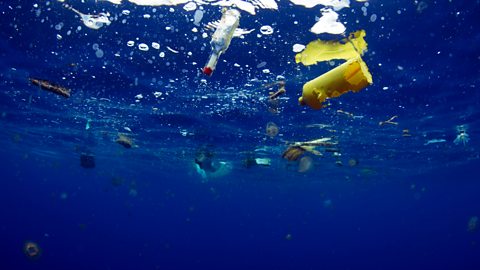
What to do if a child is upset by climate change or plastic pollution
Concern about the future health of the Earth can cause anxiety and worry in children.
Remind them they are not alone
It is important to remind children that it is OK to feel anxious and that they are not alone in feeling worried or upset. Other children and adults will feel the same way.
Share their worries
Encourage them to share their fears or worries with an adult they trust. If they find it hard to explain, drawing and writing can provide excellent outlets for expressing their feelings.
Positivity
Balance out the upsetting news articles about climate change and pollution with positive stories of how individuals and groups are benefitting our environment. For every sad thought, remind them of all the things that make them happy and feel positive, and that they can make a difference by recycling, reducing and reusing their plastics.
Visit CΒιΆΉΤΌΕΔ Newsround for more advice for children upset by the news.

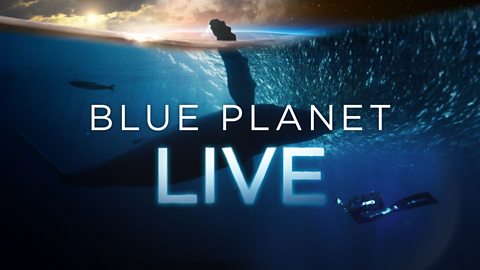
ΒιΆΉΤΌΕΔ Teach and Blue Planet Live are here to help
Explore plastics and sustainability with five special Blue Planet Live films exploring our oceans and its wildlife, and find out how marine life is coping in the face of increasing environmental pressure.
Broadcasting in the last week of March, ΒιΆΉΤΌΕΔ Oneβs Blue Planet Live highlights the health of oceans with extraordinary marine encounters across the world. Across four live shows, Blue Planet Live will revisit animal characters from multi-awarding winning Blue Planet II, and meet new creatures, celebrating our oceans' complexity with never-before-seen footage.

Blue Planet - Live Lesson. video
This science and geography Live Lesson for 7-11-year-olds explores the Earth's rich marine life and ecosystems, as well as some of the threats to our oceans.
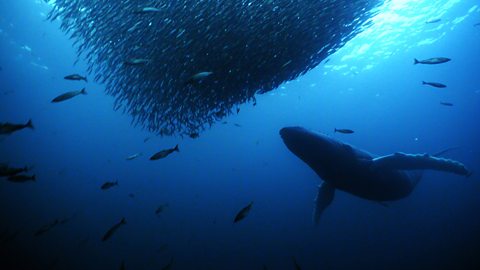
Primary Live Lessons
Find out more about our Live Lessons designed for primary school students
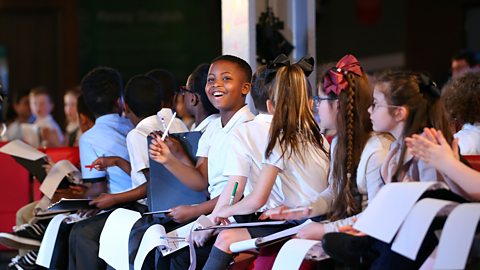
Return to the Live Lessons homepage for more curriculum-linked Live Lessons across primary and secondary
